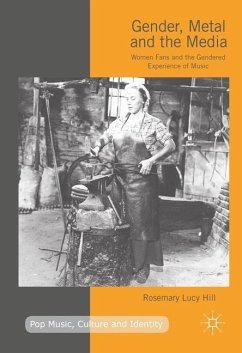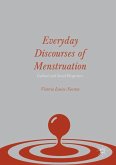This book is a timely examination of the tension between being a rock music fan and being a woman. From the media representation of women rock fans as groupies to the widely held belief that hard rock and metal is masculine music, being a music fan is an experience shaped by gender. Through a lively discussion of the idealised imaginary community created in the media and interviews with women fans in the UK, Rosemary Lucy Hill grapples with the controversial topics of groupies, sexism and male dominance in metal. She challenges the claim that the genre is inherently masculine, arguing that musical pleasure is much more sophisticated than simplistic enjoyments of aggression, violence and virtuosity. Listening to women's experiences, she maintains, enables new thinking about hard rock and metal music, and about what it is like to be a women fan in a sexist environment.
"Gender, Metal, and the Media is a thoroughly enjoyable and enlightening book. Readers will leave energized, thinking about gender and fandom in new ways. With its solid use of subcultural theory, this book's primary audience would be scholars of subcultural studies, but it should also be of interest to scholars and students of media, culture, and gender studies." (Elizabeth Cherry, Feminist Media Studies, Vol. 18 (1), December, 2017)








